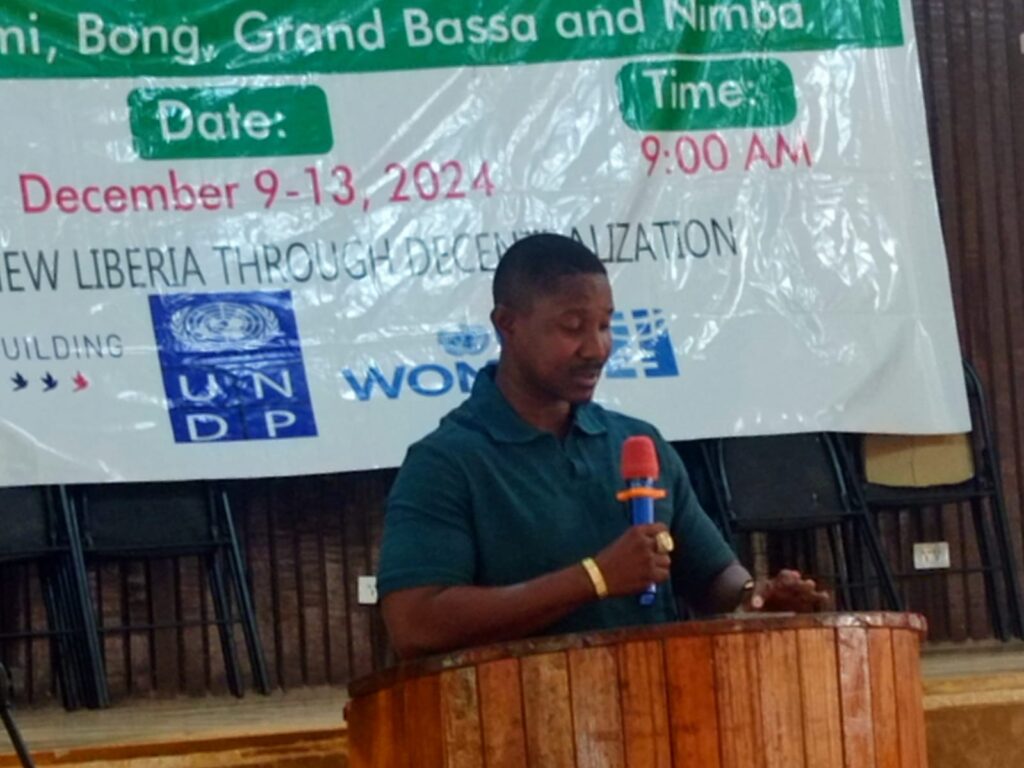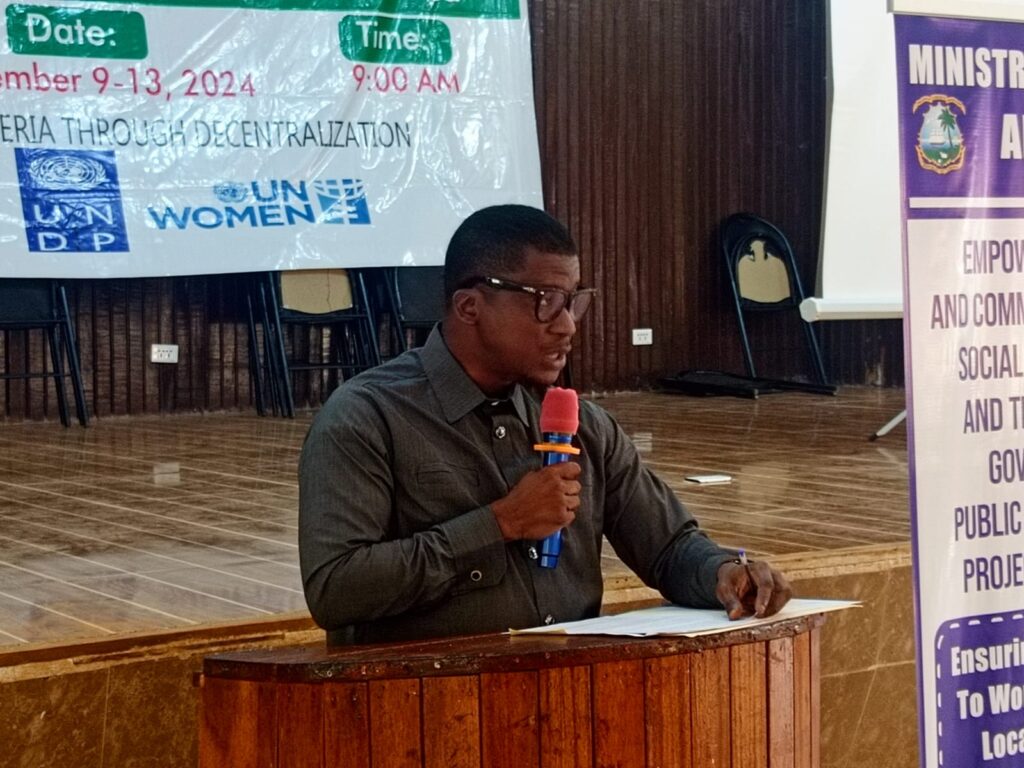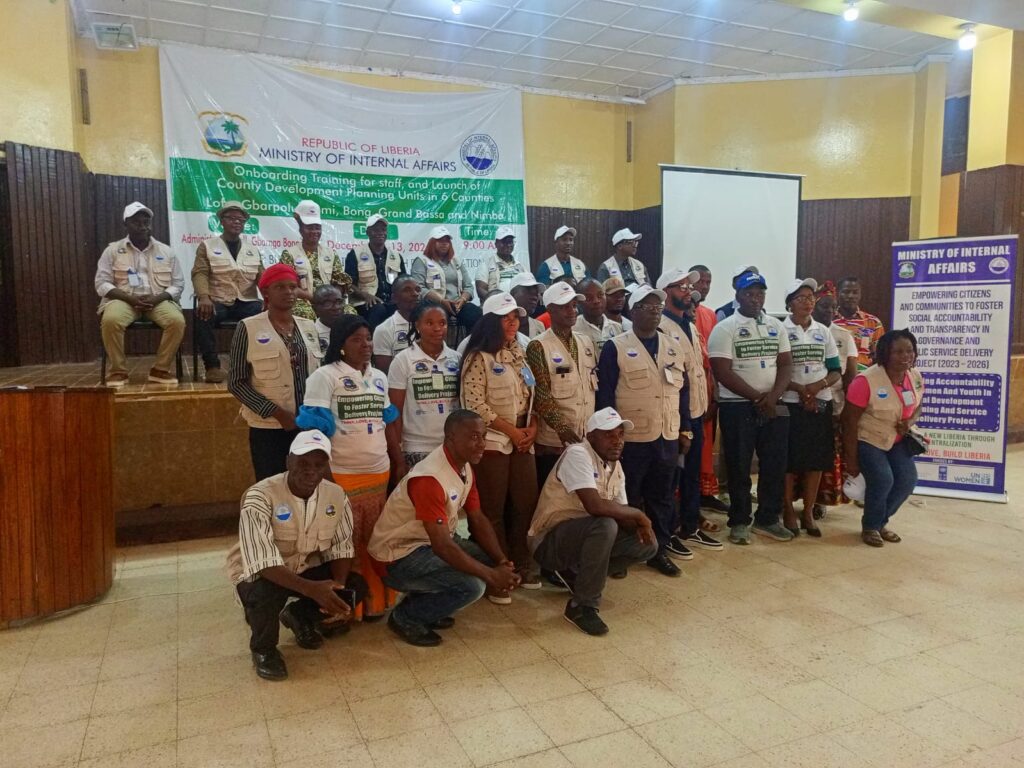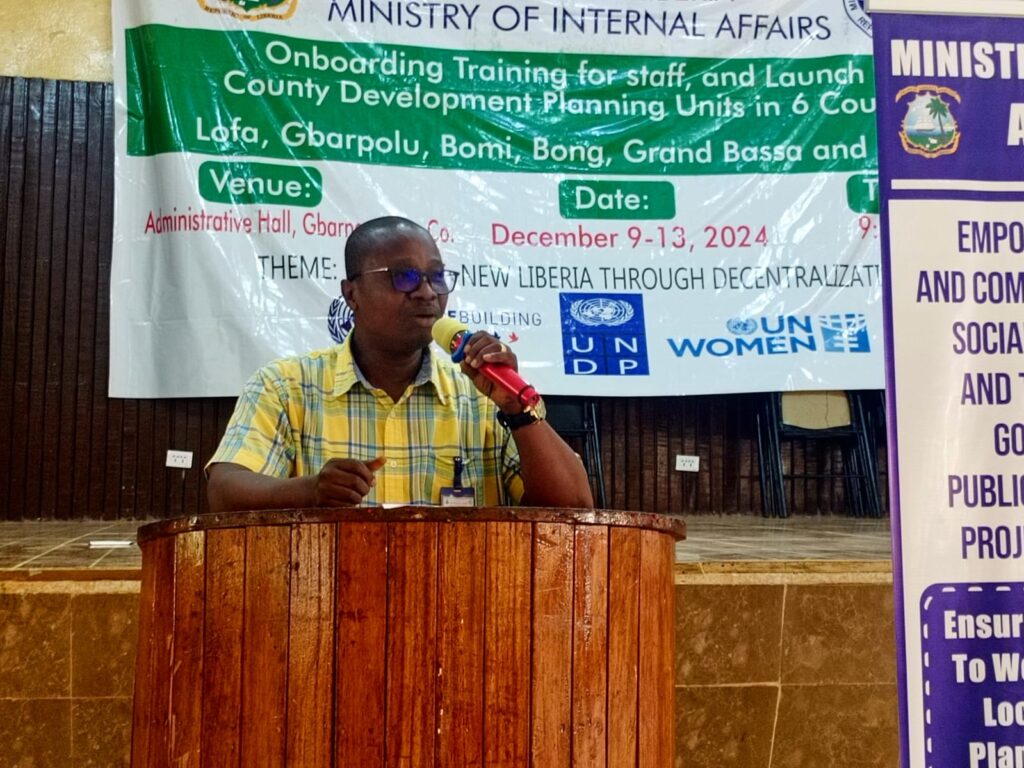By: Geeplay Ezekiel Geeplay
GBARNGA, December 9, 2024 – The Ministry of Internal Affairs has launched county development planning units (CDPU) in five counties, an initiative designed to enhance the technical capabilities of local government in keeping with President Joseph N. Boakai’s ARREST Agenda.
Following the launch, a five-day intensive training workshop has commenced, taking place in Gbarnga, Bong County, from December 09 to December 13, 2024.
The training, according to Internal Affairs Minister Francis Nyumalin will focus on empowering participants to effectively track, monitor, and report progress related to the County Development Agenda (CDAs).
The minister statement was contained in a speech delivered on his behalf Monday, December 9, 2024 in Gbarnga Bong County by Deputy Internal Affairs Minister for Research and Development Planning Edward K. Mulbah.
In the statement, Minister Nyumalin underscores the Ministry’s commitment to promoting sustainable development in Liberia, emphasizing the integration of gender considerations into all county-level development processes.
“By prioritizing gender inclusivity, the Ministry aims to create an environment that empowers all community members and fosters equitable development” Minister Nyumalin explained in the statement.
Meanwhile, the week-long training as a first step will focus on the establishment of the County Development Planning Units in six targeted counties: Bong, Nimba, Bomi, Gbarpolu, Grand Bassa, and Lofa respectively.
According to the MIA Boss, those established units are expected to play a pivotal role in coordinating development efforts, ensuring that local needs and priorities are addressed effectively and efficiently at the local authority levels in promoting government decentralization drive.
Minister Francis Nyumalin expressed enthusiasm for the training program, adding that it is a significant advancement in strengthening local governance.
“By building technical skills and promoting gender inclusivity, we are laying the groundwork for the effective implementation of the County Development Agenda, ultimately improving the quality of life for all Liberians,” he stated.

Making special remark on behalf of his organization, Eric Boykai, UNDP Decentralization Program Officer in Charge describes the Ministry of Internal Affairs approach to launching the County Development Planning Units as pivotal, adding that it will not only enhance local government activities, but is also aimed to demonstrate integrity, accountability and transparency in local governance across the country.
“This initiative is crucial in capturing the aspirations of development needs for local dwellers, the citizenry and development partners as well,” he intoned.
For his part, Deputy Minister for Research, Policy and Planning, Ministry of Gender Children & Social Protection Curtis V. Dorley in separate remark said the Minister of Gender, Children and Social Protection recognizes the significance of the county development planning units that will ensure that development programs and initiatives are aligned to the national development plan and County development agenda.

According to Deputy Minister Dorley, “To ensure that this is achieved, it is important to organize training of Trainers workshops of county administration in the five targeted counties.
“The creation of development planning units is not just an administrative action or procedure, but a transformative approach to local governance,” he concluded.
Rooted in the local government Act of 2018, these units represent a forward-thinking mechanism to decentralize decisions making and empower local administrations.

The Gender Ministry Deputy Minister intimated that county development planning units serve as critical bridges between national development strategies and county specific priorities.
Held under the theme: Building a New Liberia through Decentralization, the five-day ongoing activities brought together local government officials from the selected counties, Ministry of Gender, Children and Social Protection and Governance Commission with support from UNDP and UN women.
Edited: Jesefu Morris Keita




1 Comment
Thank you for your sharing. I am worried that I lack creative ideas. It is your article that makes me full of hope. Thank you. But, I have a question, can you help me?